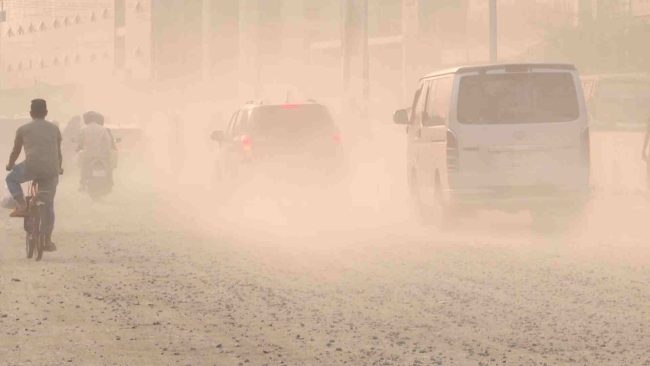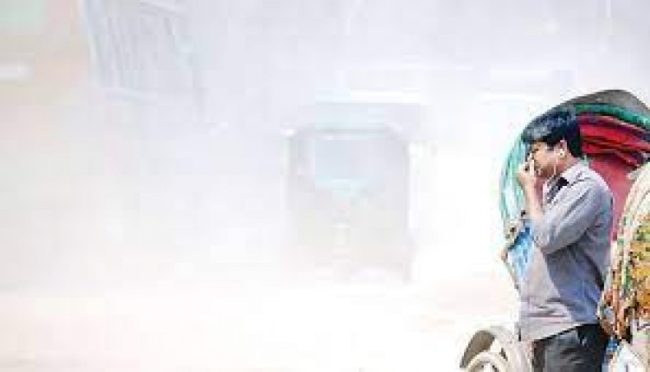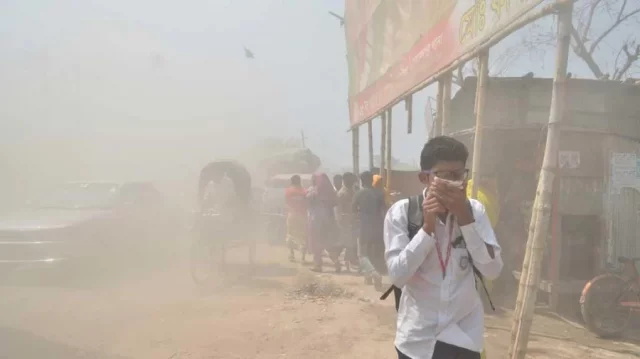Dhaka’s Air Quality Ranks Third Worst Globally This Morning, Urgent Actions Needed to Address Crisis

The shocking news that Dhaka, the capital of Bangladesh, is the third-worst city in the world for air quality this morning struck the city as it awoke. The Air Quality Index (AQI) showed a concerning level, which alarmed both the general public and environmentalists.
The city, known for its bustling streets and vibrant culture, is grappling with a severe air pollution crisis that has reached critical levels. The AQI, a measure of the concentration of pollutants in the air, touched a hazardous mark, indicating a severe threat to public health. Experts attribute this shocking decline to a combination of factors, including vehicular emissions, industrial activities, and crop burning.

As the morning sun tried to pierce through the thick layer of smog that enveloped Dhaka, citizens expressed their growing concern about the deteriorating air quality. Many reported experiencing respiratory issues, eye irritation, and a general sense of discomfort. Local hospitals have reported an increase in patients seeking treatment for respiratory ailments, putting additional strain on the healthcare system already grappling with the ongoing pandemic.
Environmental activists and experts have long warned about the consequences of unchecked pollution in Dhaka. Rapid urbanization, coupled with a surge in industrial activities, has led to a significant increase in the emission of pollutants such as particulate matter (PM), nitrogen dioxide (NO2), and sulfur dioxide (SO2). The city’s over-reliance on fossil fuels and the lack of stringent regulations have only exacerbated the problem.
Government officials have acknowledged the severity of the situation and pledged to take immediate action to address the crisis. The Ministry of Environment and Forests has convened an emergency meeting to formulate a comprehensive plan to curb air pollution in Dhaka. Authorities are considering measures such as stricter emission standards for industries, promoting public transportation, and enforcing regulations against open burning of waste.
International organizations and environmental agencies are closely monitoring the situation, with some offering assistance to help Dhaka combat its air pollution crisis. The World Health Organization (WHO) has emphasized the need for a coordinated effort to tackle the issue, highlighting the long-term health risks associated with prolonged exposure to high levels of air pollution.

In a press conference, Dr. Ayesha Rahman, a renowned environmental scientist, stated, “The situation in Dhaka is critical, and urgent actions are needed to address the root causes of air pollution. This is not just an environmental issue; it’s a public health emergency that requires immediate attention and decisive measures.”
As citizens await the government’s response to the crisis, there is a growing realization that individual efforts are also crucial in mitigating the impact of air pollution. Experts recommend using public transportation, reducing vehicular emissions, and adopting sustainable practices at the community level.
The current air quality crisis in Dhaka serves as a stark reminder of the global challenge posed by air pollution. It underscores the importance of collaborative efforts between governments, industries, and citizens to create a sustainable and healthy environment for current and future generations. As the city grapples with its third-worst ranking in global air quality, the time for decisive action is now.
